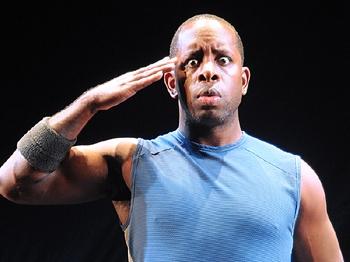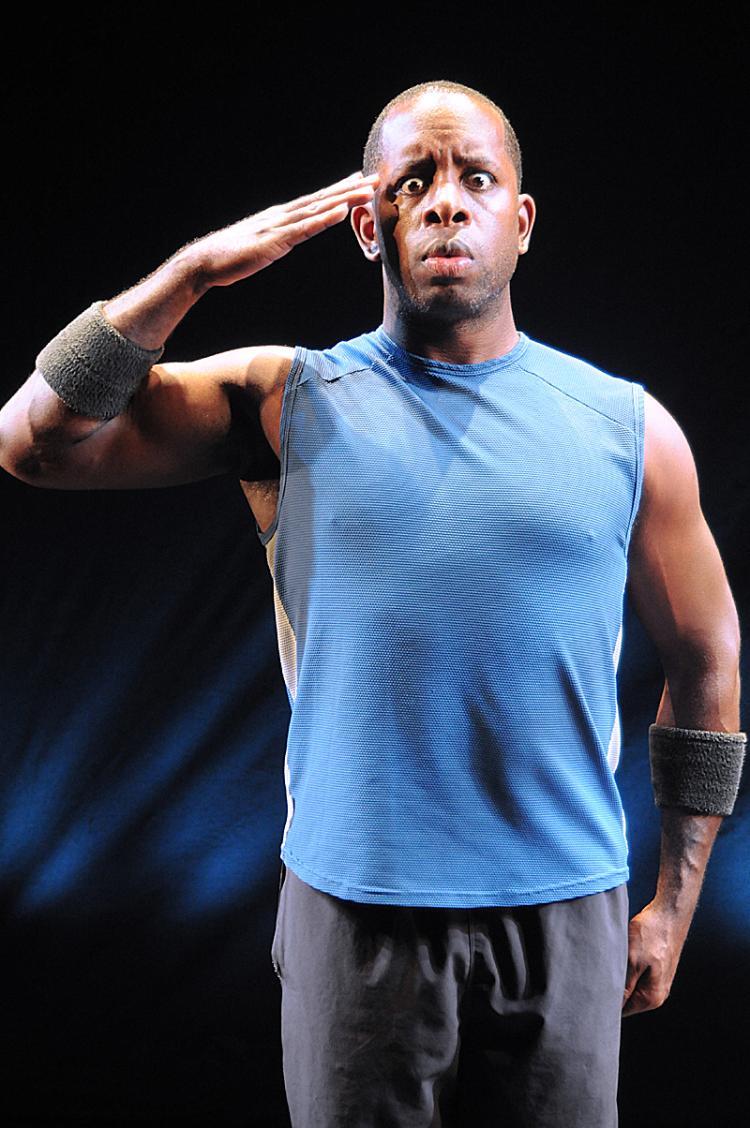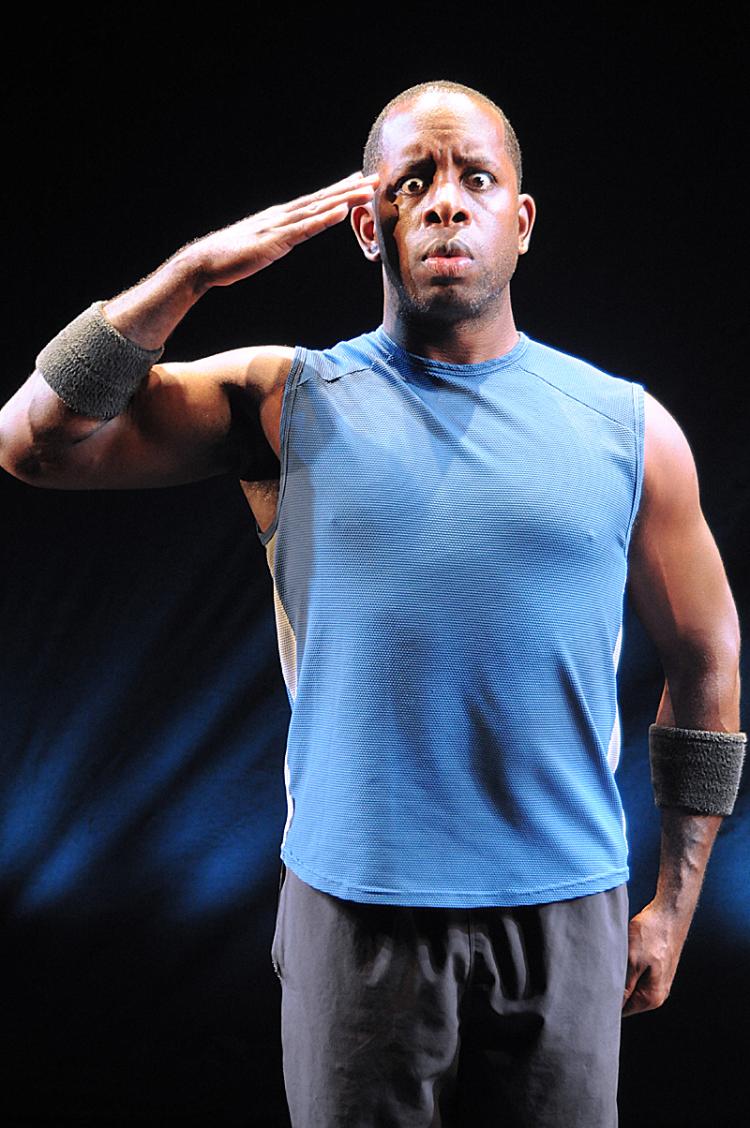NEW YORK—You can’t choose your family … but you can change it, as Kahlil Ashanti proves in his poignant, hilarious, and ultimately uplifting one-man show Basic Training. Based on a true story, Kahlil shows how a turbulent family life ultimately leads him on a journey of self-discovery. (Kahlil also wrote and directed the piece.)
In 1992, Kahlil, a budding comic, enlisted in the United States Air Force mainly as a way to escape his abusive father Maurice, someone he could never please no matter how hard he tried. His mother tries to placate the situation by noting that Maurice is often jealous of Kahlil, who has accomplished more in his life than Maurice ever has been able to.
However, there may be some deeper secret behind the abusive rage, one that may also explain why Kahlil’s mother has stayed married all these years. Just as he is leaving for basic training, his mom causally mentions that Maurice is not his biological father, news that, not surprisingly, knocks Kahlil for an emotional loop. Although his mom insists she’s told him about this before, she refuses to elaborate on it now. Nor will his uncle Tony, who just wants to stay out of the matter.
During basic training, Kahlil sees a performance by the Air Force “Tops In Blue” unit, which entertains troops all over the world, later becoming a member of Tops In Blue himself. And while he demonstrates the comedy act he used to audition for the company, (and the audition pieces of several others), he soon comes to learn that entertaining can be a very serious business—such as when he sings a country song to a dying seven year-old girl, and, when traveling in Turkey, the group’s bus is sprayed with gunfire, and it’s only through a lucky break that things don’t turn out far worse. Through it all, Kahlil continues to try to learn the truth about his parentage, slowly connecting the dots of his past and wondering if his real father ever bothered to look for him.
Playing 23 characters, each with their own distinctive voice and personality, Ashanti makes the show work not only because of the very personal connection he has to the story, but also because he’s able to leaven this very serious subject with some wonderful bursts of humor. While this is definitely serious for him, he makes sure the audience sees it with a lighter touch, as in the way he tells the story of when he found out Maurice was not his biological father. Other instances of walking the line between comedy and drama include his wonderful portrayal of a tough-as-nails drill sergeant who uses profanity the way most people breathe, and his encounters with a fellow recruit named Miller, who suffers from Tourette’s Syndrome. (One can picture the sergeant bellowing at the recruits and Miller trying to respond.)
Other powerful characters include the mean-spirited Maurice, a rather flamboyant Tops In Blue organizer named Benny, and a delightfully funny Uncle Tony. Yet, through it all, none of his characters ever feel less than fully real (appropriate, since they are all based in reality) or go over the line into parody or melodrama. A good choice, both in terms of writing and directing, both of which Ashanti does with a sure hand.
Never far from the surface is the fact that this is a story Ashanti has lived through, and thus he is able to vividly recreate it for the audience and allow them to see and experience emotions and situations he himself felt (albeit through an outsider’s eyes.)
Just about the only thread that doesn’t tie together in the story is the fact that Kahlil’s mother mentions that, at one point, she was pregnant with Maurice’s child. An important plot point in the story, but it’s not mentioned again, and leaves one wondering what happened to the individual in question. Other than this, Basic Training makes for a touching, funny, and very personal journey. Lighting by Tyler Micoleau works well, especially in the more serious moments.
Basic Training
Barrow Street Theatre
27 Barrow Street
Tickets: 212-868-4444 or www.smarttix.com
Information: www.BasicTrainingNYC.com
Closes: Jan. 4
Running Time: Approximately 1 hour
Judd Hollander is the New York correspondent for the London publication The Stage.







